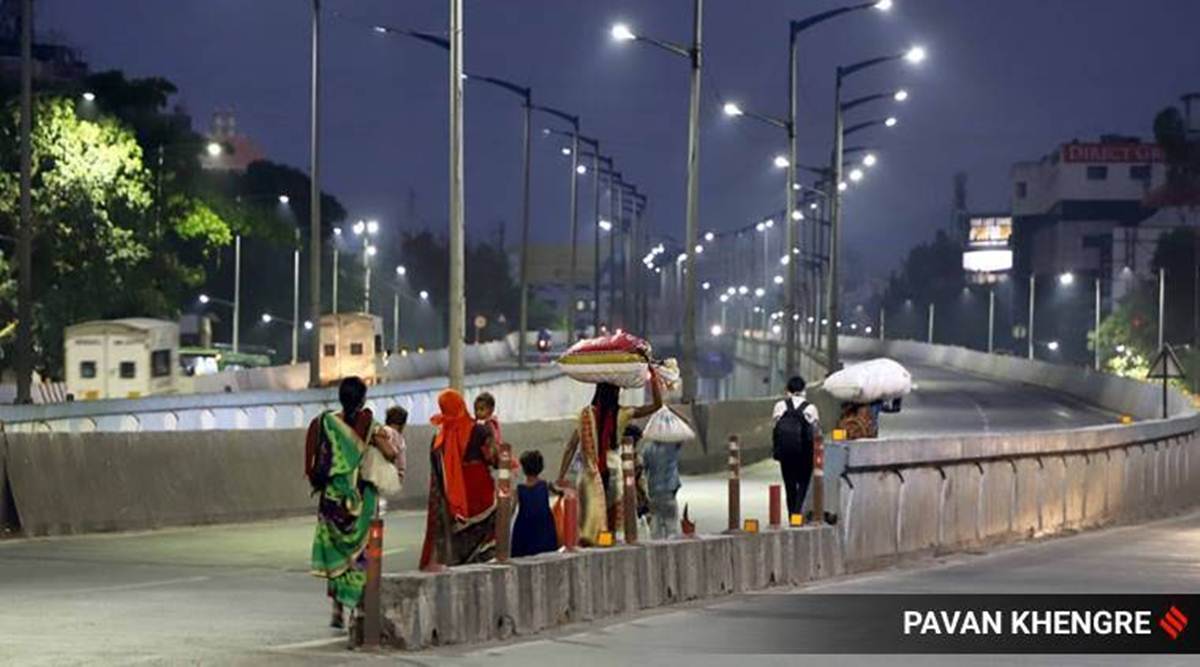 The office of the Chief Labour Commissioner (under the Union Ministry of Labour and Employment) is reopening 20 migrant labour control rooms across the country after three months.
The office of the Chief Labour Commissioner (under the Union Ministry of Labour and Employment) is reopening 20 migrant labour control rooms across the country after three months. After months of being dormant, the country’s migrant management infrastructure has begun to creak back into action as labour-supplying states brace for a possible second wave of reverse migration amid increasing pandemic curbs.
States such as Jharkhand, Chhattisgarh, and Bihar, which were overwhelmed by the massive numbers of returnees last year, are hoping to be able to handle a similar situation better.
The office of the Chief Labour Commissioner (under the Union Ministry of Labour and Employment) is reopening 20 migrant labour control rooms across the country after three months.
The Chhattisgarh Labour Department started running its migrant control room round the clock a week ago. However, a call to the helpline on Monday revealed glitches: everyone in the control room had been quarantined after a staff member died of Covid, and someone from a different department had been deputed to manage calls alone.
Bihar has restarted its special control room and worker helplines.
And in a new initiative, Kerala’s National Health Mission is making lists of migrants above the age of 45 who are to be vaccinated.
The staff strength at the migrant control room in Jharkhand is down to 13 from a peak of over 200 last year. But there are plans to rope in more staffers if states continue to impose local lockdowns.
On Friday, officials told the Jharkhand Chief Minister’s Office that proper quarantine facilities need to be set up as trains bring migrants home. Newspapers in Ranchi have been publishing pictures of empty railway coaches, reporting that passengers from Mumbai were getting off trains ahead of their destinations to avoid testing for the coronavirus.
Lessons have been learnt from 2020, Chief Labour Commissioner DPS Negi said. “Last time, because it (control rooms) was opened in a hurried way, we gave the mobile numbers of the control room officers. When they were getting 800 calls per day, people thought they weren’t listening because they weren’t picking up. Now we are thinking of making toll free numbers. The results will be better,” Negi said.
The 20 control rooms, mostly managed by labour commissioners, had been opened first in April 2020, and were reopened on Saturday.
Negi added that the All India Survey on Migrant Workers that began fieldwork on April 1 would transition to “states and areas where there is very little or no Covid.”
In Chhattisgarh, which is currently seeing one of the steepest Covid-19 spikes in the country, Deputy Labour Commissioner Savita Mishra said last year’s crisis had brought home to the government the extent of the outbound migration.
“When we had earlier asked panchayats for registrations on migrants, we didn’t get more than 50 to 60 thousand entries. Last year, it was an eye-opener that 5 lakh came back… We used to think we had migrants go to mostly UP, Maharashtra, Delhi. But we were surprised that large numbers were coming from Jammu and Kashmir, Andhra Pradesh, West Bengal, Odisha, and even Madhya Pradesh,” she said.
Mishra said the government had opened a new registration link last week to keep a tab on the numbers of returning migrants, but was not seeing the same activity as last year yet. Only 84 distress calls had come in, and a total 24 registered migrant workers had returned as of April 15.
“Transportation is open. They usually only call us when transportation is an issue. Workers’ calls are not coming in that much,” she said.
Bihar principal secretary for Labour Mihir Kumar Singh said the reverse flow into the state is “light, in the few thousands”. Last year, the state had registered 18.6 lakh returning migrants. “The lockdowns are localised and not large-scale where all economic activity is shut. Therefore, it is manageable,” he said.
Chief Labour Commissioner Negi said: “Last time, the panic we saw in the minds of people, we don’t see that panic right now.”
However, Ranjit Karnali, an electrical engineer who worked on solar plant installations in Mumbai for five years, told The Indian Express over the phone: “The situation is worse than the last time.” He said he was waiting in Raipur for a vehicle to take him and three others to Ramgarh, Jharkhand.
“In the last lockdown, our factory was functioning. This time it is not. Train mein zabardast bheed hai (Trains are very crowded); it’s very difficult to get a reservation. I called the government helplines, no one answered. Fine de ke jaana pada (We had to pay a fine to travel),” he said.
An official at the migrant control room in Ranchi said it was possible calls were not coming in because phone numbers had changed in February.
Rakesh Prasad, the state’s Deputy Labour Commissioner conceded that “migrants se zyada Covid pe focus hai (there is greater focus on Covid than on migrants)”.
- The Indian Express website has been rated GREEN for its credibility and trustworthiness by Newsguard, a global service that rates news sources for their journalistic standards.

